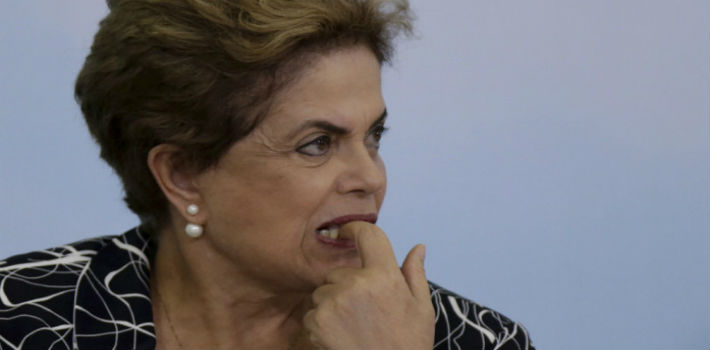
EspañolThe impeachment trial of Brazilian President Dilma Rousseff was announced Thursday, May 12 by the Brazilian Senate, making the country yet another example of a Latin American democracy grappling with an ugly end to its leftist president’s time in office.
An analysis published by Spanish daily El País pointed out how many leftist Latin American presidents have lost power — and for all sort of reasons.
“One after another, the totems of the Latin American left fall like domino pieces progressing inexorably,” the paper wrote.
But the article’s author, Andrea Rizzi, does not talk about the Latin American left as a singular unit, but rather as a collective made up of the many political projects of Chavez, Kirchner, the Brazilian Worker’s Party and Evo Morales, among others.
“It is crystal clear that much of the soi-disant progressive formations of the subcontinent, which have dominated the scene for a decade, are hearing lugubrious bells,” Rizzi wrote.
Chavismo in Venezuela shows how the left have led the country toward “Zimbabwean-type hyperinflation amid dreadful crime rates” despite having “suffered a resounding defeat in the last legislative elections.”
In Argentina, Kirchnerism has been evicted from the presidential house Casa Rosada. In Bolivia, Evo Morales is struggling to remain in power. In Chile, even Michelle Bachelet “sees cracks and canyons opened in her previously untainted reputation” as a result of corruption within her family.
“The political project begun by the charismatic Lula, followed by Rousseff and admired in its time around the world is now suffering its own Armageddon, with the impeachment smooth sailing and the whole country sinking into the ice of recession and muddy corruption,” Rizzi wrote.
Though each case in each country has its own particular explanation, the analysis identifies several common denominators.
- Read more: President Rousseff’s Campaign Was Financed with Bribes
- Read more: Impeaching Rousseff Is Not Enough to Fix Brazil
One of the contributing factors to the decline of the left in the region is the end of the commodity boom, which has “cut off the stream that funded the party in the region.” In his view, the various projects put too much emphasis on redistribution and not enough on promoting wealth creation, investment and diversification.
“Exasperating bureaucracies, protectionism, corruption and expropriations in different doses depending on the case did not help prepare several countries for the hard landing that they are now suffering,” he said.
Rizzi said another cause was the left’s attempt to remain in power.
“Perpetual power is always toxic, and tends to cause distrust and corruption even in more consolidated democracies.”
“Several countries of the region have taken a genuine judicial offensive against corruption, sometimes very aggressively … This trait, which at first glance would make Montesquieu happy, transforms virtue into scourge,” the analysis said.
“The balance of powers question is evidence of the larger systemic risks that Latin America is facing in this colossal regional political transition,” he added.
“Hopefully some increasingly mature civil societies know how to channel this political change …(with) inclusive policies, loyal acceptance of defeat and victories that prevent vindictive behavior that usually only lead to political fires and economic misery,” he concluded.
Source: El País.
 Versión Español
Versión Español












